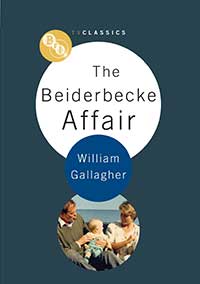Last May I was writing a huge book about Blake’s 7 plus a two-hour Doctor Who radio drama and a short one-act stage play for the Birmingham Rep. As you do. That’s actually the little cauldron I was in when I thought of The Blank Screen and so started writing that book at the same time. You can of course argue about the quality of my work – Doctor Who: Scavenger comes out next month so you can even hear it for yourself – and I did use half a dozen productivity tools to handle it all. But one that really helped was that I moved around.
I wrote Blake’s 7 in my office on a 27in iMac. I wrote the Doctor Who on my MacBook Pro, mostly in my living room. And then while this wasn’t as hard-and-fast, I did write at least some of the play on my iPad in the kitchen.
It got so I associated certain rooms and machines with certain projects. The Blank Screen is definitely an iPad book: I wrote that going everywhere, starting with the first thousand words on a bus ride to go see my mother. But Blake’s 7 is definitely an iMac: I say this to you and I can see it. My Word document open here, an episode of the show there or audio from an interview or a scanned document from the BBC Written Archives there.
I don’t think I ever told any of my editors or producers this, but in my head if I had to call them about something, I would first go to the room and the machine that I associated with that.
This was entirely a contrivance. The complete text and all notes for all of these projects were always on all of these machines at the same time. I could and when necessary did start a sentence of one book on one machine and finish it on another.
And at every place I also read RSS news. So I don’t know why it’s taken me ten months to find out that other people benefit from this madness too. ImpossibleHQ calls it Workstation Popcorn. Meh. But the ideas in their article about it fit what worked for me and they go further. Literally. This bunch recommends dividing your day’s tasks into groups and then physically moving to different locations between each set:
Once you finish all the tasks in group #1, get up and move. Close your tabs, pack your bags, and physically move your butt to your next spot. If you can, walk or bike to your next stop. Avoid driving if you can. The physical activity is important.
Hmm. I’m a writer, we’re supposed to be sedentary. But biking advice aside, there’s a lot to like in this piece and quite a bit to think about. Also a lot to wade through, but have a good go.
